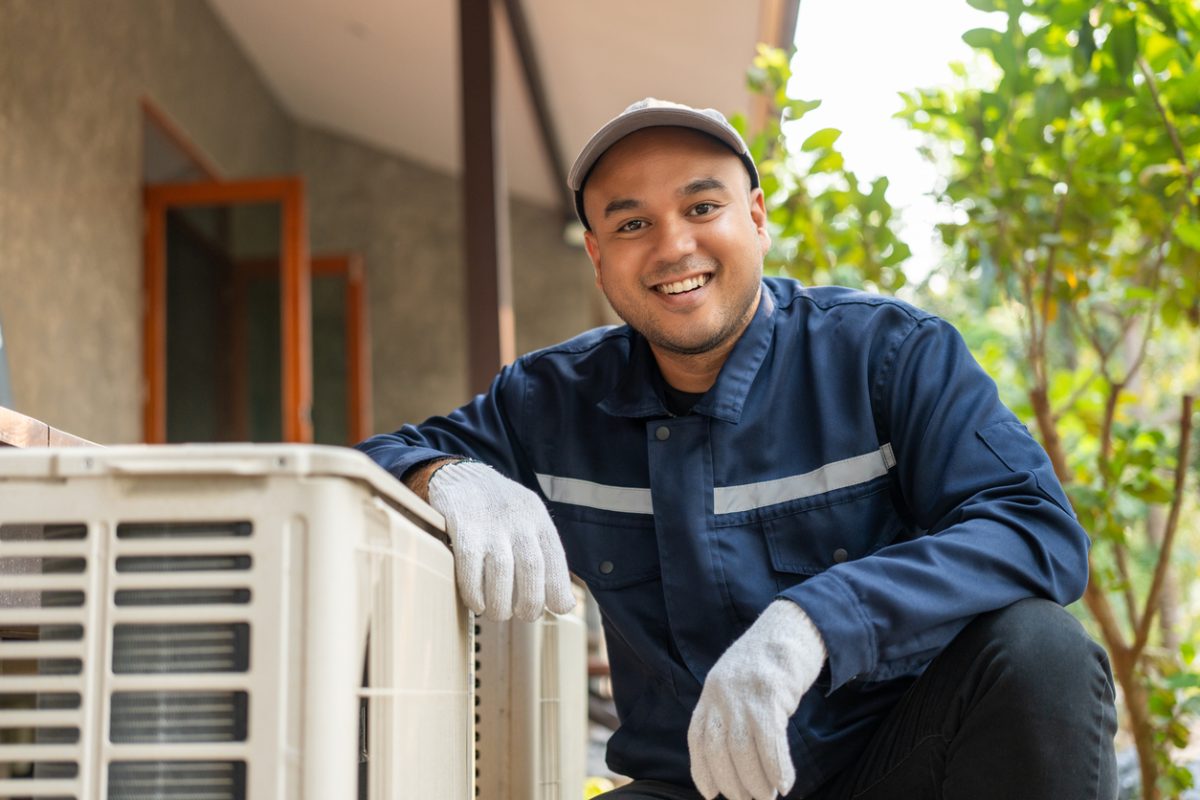Air Conditioning Repair: Top 6 Questions

It can be frustrating to try and find straightforward answers when you’re not an expert on AC repair, so we have put together a guide with answers to the most common questions.
1. How often should I have my AC serviced?
All units should be serviced a minimum of once annually, with periodic inspections up to 4 times a year to minimize AC repair.
Therefore, we suggest scheduling a consultation with a leading HVAC service company that has respected industry certifications.
Moreover, based on the age, size and usage of your system, a quality HVAC repair contractor can tailor a service plan to meet your budget requirements and keep your system running reliably.
2. Why does my system seem to need more refrigerant each year?
Leaking refrigerant not only causes your unit to lose cooling capacity and use more energy, it’s also very bad for the environment.
In effect, refrigerant gases released into the atmosphere are one of the worst culprits in depleting the ozone layer.
An air conditioning system that needs recharging of refrigerant on a regular basis is leaking and needs repair.
Be sure to choose a service provider that uses the latest technology to find refrigerant leaks, since the old methods are very time consuming and will cost you more money.
3. Can my air conditioning control humidity in my building?
While there are a number of methods used to help your air conditioner remove humidity from the air, the most efficient methods involve using heat generated by the air conditioner itself to cause the unit to run long enough to remove more moisture from the air.
When properly designed and controlled, your air conditioning system definitely should keep the air in your building at between 40 and 60 percent relative humidity.
Humidity levels that are too high or too low are one of the leading causes of poor indoor air quality, and can result in mold growth, the spread of airborne illnesses, and even computer breakdowns.
If your building is too humid or too dry, your HVAC tech can check if your humidistat is properly set, or if your system requires HVAC maintenance.
And don’t forget, for questions on this or any other air conditioning repair or HVAC repair issue, just send us a message or call now!
4. How can I ensure that my air conditioning unit lasts as long as possible?
The best thing you can do to prolong the life of your system and reduce AC repair is to have it regularly serviced by a professional.
In addition, here are a few tips for easy things you can do to avoid costly air conditioning repair:
- Use programmable thermostats to reduce air conditioning usage when it’s not needed.
- Prevent dirt from clogging up your system, and keep airflow paths clear by keeping leaves & debris from collecting around your outdoor AC unit.
- Use blinds and shades on west and south-facing windows to keep out heat in the summer.
5. What do the air conditioner ratings mean?
- EER (Energy Efficiency Ratio) is a measurement of the cooling output of an air conditioner divided by its energy usage, calculated under specific test conditions that represent peak load.
A higher number means a more energy efficient system. - SEER (Seasonal Energy Efficiency Ratio) measures the efficiency of cooling equipment, calculated based on a seasonal average instead of at specific laboratory conditions.
A higher the SEER rating means the unit is more energy efficient. - HSPF (Heating Seasonal Performance Factor) measures the efficiency of the system’s heat pump.
Again, a higher number means a more efficient unit.
6. How can I reduce energy costs?
Since as much as 50% of your building’s energy consumption is used by your HVAC system, here are a few tips:
- Firstly, upgrade to a newer high efficiency air conditioning unit.
According to the U.S. Environmental Protection Agency (EPA), every dollar invested in energy efficiency can produce a double or triple return on investment.
Upgrading to high efficiency equipment can pay for itself in a surprisingly short period of time. - Secondly, choose ENERGY STAR labeled systems.
According to the US Department of Energy, these systems can save you $3 to $4 per square foot over the life of the equipment.
In addition, you also may be eligible for rebates from your utility company. - Thirdly, perform an energy audit to determine your usage needs, then install programmable thermostats to decrease usage when it’s not needed.
For larger buildings, install zoning and Building Automation Systems to have more precise control over energy usage. - Fourth, install economizers, which measure outside air to determine when it’s cool and dry enough to provide comfortable conditions inside.
If it is, outside air is used instead of running the air conditioner, reducing energy usage. - Finally, have your system regularly cleaned and tuned up.
Dirty systems with worn parts must work harder to produce the same results, and use more energy in the process.
And don’t forget, for questions on this or any other air conditioning repair or AC repair issue, just send us a message or call now!
